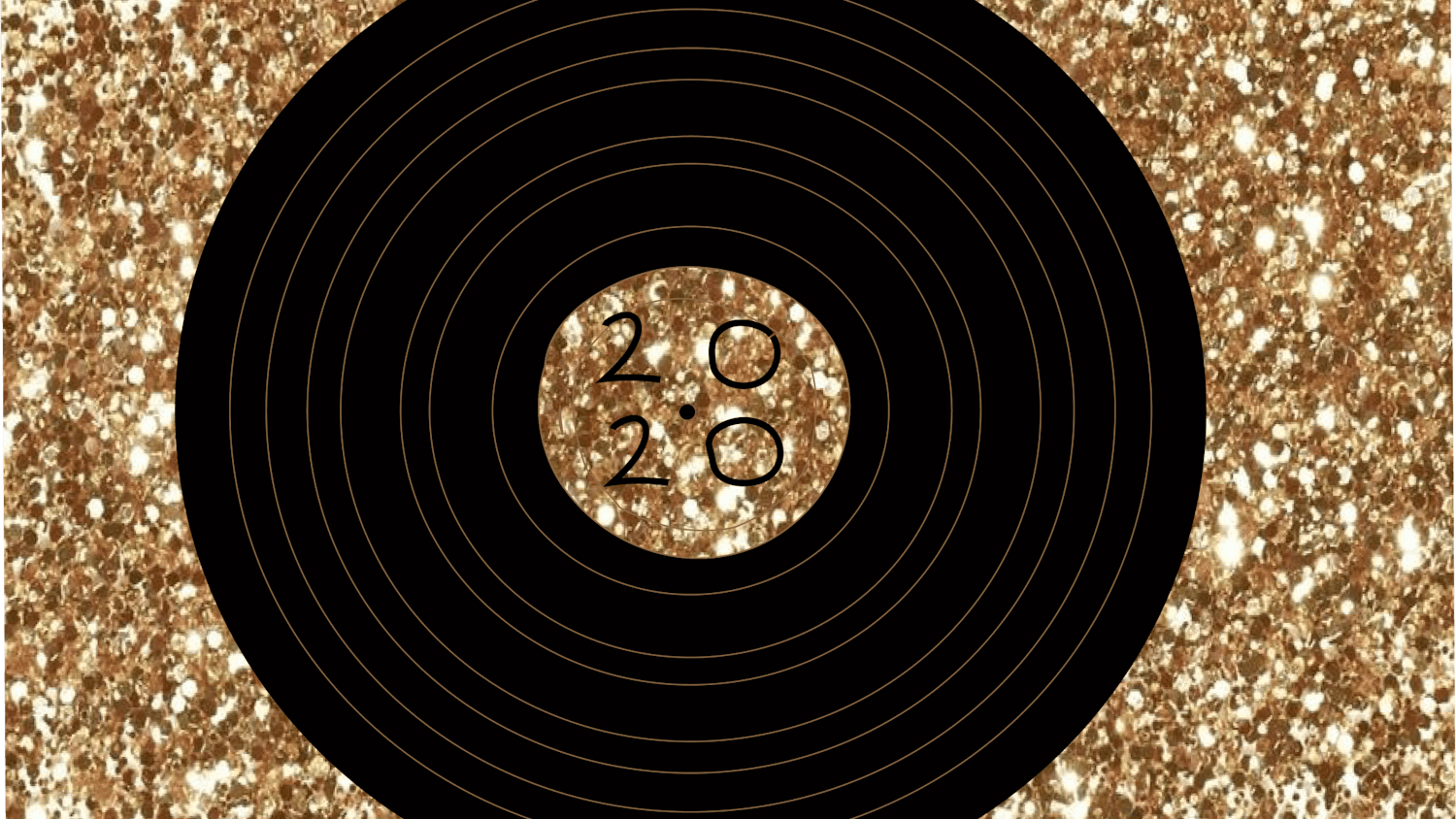The 63rd annual Grammy Awards, which took place on March 14th, marked the continuation of this year’s socially distanced award season. Unlike the Golden Globes a few weeks ago, the Recording Academy chose to hold its ceremony outdoors where it could host nominees in person. The format worked well, making the ceremony feel more like a normal, pre-COVID event.
Late-night comedian Trevor Noah, who recently spoke to the Dartmouth community, hosted the event. While peppering in some jokes here and there, he was careful not to dominate or take too much attention away from the nominees and winners.
Megan Thee Stallion and Cardi B’s performance of their hit song “WAP” came as one of the more memorable performances of the evening. The Academy’s decision to censor parts of the song, one of the biggest hits of the year, one of the biggest hits of the year, only made the performance more engaging — due to profanity, nearly every line of the song had to be altered, including the chorus, which Cardi B and Megan Thee Stallion sang as “wet wet wet.” The evening also featured other notable performances from Dua Lipa, HAIM, Harry Styles and Taylor Swift.
The biggest winner of the night was Beyoncé, who won four awards from her nine nominations. This puts Beyoncé’s total Grammy count at 28, breaking the record for the most ever won by a singer.
Megan Thee Stallion was another big winner, taking home three Grammys from her four nominations. Overall, there were no major upsets or surprises in the most important categories.
Album of the Year: “Folklore” by Taylor Swift
For what is widely considered the biggest award of the night, Taylor Swift took home her third album of the year award for “Folklore.” The album, released over the summer as a surprise, marked an abrupt change in style for Swift, dropping the unabashed pop of her previous three albums in favor of an acoustic, indie-folk sound that was well-received by critics. This bold new direction for such an established artist likely contributed to her win.
This year marks her return to the Grammys stage after a four year hiatus. “Folklore” beat out Dua Lipa’s “Future Nostalgia,” HAIM’s “Women in Music Pt. III” and Post Malone’s “Hollywood’s Bleeding.”
Record of the Year: “Everything I Wanted” by Billie Eilish
At last year’s Grammy Awards, Billie Eilish made history by, at the age of just 18, becoming the first artist since 1981 to win all four major awards. Though she did not dominate the show this year, she did bring home two awards: Best Song Written for Visual Media for “No Time to Die,” the theme song for the James Bond movie of the same name, and Record of the Year for “Everything I Wanted,” a downtempo pop track she produced with her brother Finneas.
Other major nominees in the category were Beyoncé for “Black Parade,” Dababy for “Rockstar,” Doja Cat for “Say So,” Dua Lipa for “Don’t Start Now” and Megan Thee Stallion for “Savage.”
Song of the Year: “I Can’t Breathe” by H.E.R.
While Song of the Year may sound very similar to Record of the Year, the latter refers to the song as a whole — including performance, production and engineering — while the former refers only to the songwriting. This year, Dernst Emile II, H.E.R. and Tiara Thomas won the award for their collaboration on H.E.R.’s “I Can’t Breathe,” a song about police violence and racial inequality in the United States. Other nominees included “Cardigan” by Taylor Swift, “Circles” by Post Malone, “Everything I Wanted” by Billie Eilish and “The Box” by Roddy Ricch.
Best New Artist: Megan Thee Stallion
Time and time again, Best New Artist has proven itself to be the worst-defined category of the Grammys. Most winners and nominees have been releasing music for a long time but only recently became popular. Of this year’s nominees, Phoebe Bridgers released her first album in 2017, Kaytranada released his first album in 2016 and D Smoke released his first album in 2006. However, quite a few artists this year were legitimately new, including Ingrid Andress and Chika. The winner was the stellar rapper Megan Thee Stallion, who debuted her first single in 2016, but released her first full-length album “Good News” in 2020. She also gained popularity for her collaboration with Cardi B on the track “WAP.”
Best Pop Solo Performance: “Watermelon Sugar” by Harry Styles
This year’s category for Best Pop Solo Performance had a strong set of nominees. Billie Eilish was nominated for “Everything I Wanted,” Doja Cat for “Say So,” Dua Lipa for “Don’t Start Now” and Taylor Swift for “Cardigan.” Ultimately, Harry Styles came out on top, winning the award for his suggestive pop rock track “Watermelon Sugar.” Of all the former members of One Direction, Styles has by far had the most critically successful solo career, and this award cements his stylistic shift to more serious music.
Best Pop Vocal Album: “Future Nostalgia” by Dua Lipa
Dua Lipa took home the award for Best Pop Vocal Album for her dance-pop album “Future Nostalgia,” beating out Harry Styles’ “Fine Line,” Justin Bieber’s “Changes,” Lady Gaga’s “Chromatica” and Taylor Swift’s “Folklore.” In losing in the Best Pop Vocal category, “Folklore,” which beat out “Future Nostalgia” for Album of the Year, reveals the paradoxes created when the categories are based on genre. Hopefully, Dua Lipa’s critical success with “Future Nostalgia” will encourage her to continue with her newfound upbeat dance-pop style.
Best Rock Performance: “Shameika” by Fiona Apple
The award for Best Rock Performance went to Fiona Apple for “Shameika,” the only single on Apple’s first album in 8 years, “Fetch the Bolt Cutters.” This up-tempo, piano-driven track about a middle school acquaintance was a bold return to music for her.
Other notable nominees include “Kyoto,” a spirited and catchy track by Phoebe Bridgers, and “The Steps,” a sunny, guitar-driven track from HAIM. Four of the six nominees for this category were women solo artists, and the other two were women-fronted bands, notable in a historically male-dominated genre.
Best Alternative Music Album: “Fetch the Bolt Cutters” by Fiona Apple
Fiona Apple received her second award of the night for “Fetch the Bolt Cutters,” which features the song “Shameika.” This award, on top of Apple’s award for Best Rock Performance, marks the culmination of nearly a year of critical acclaim for this album. Given her track record, however, it is likely that we won’t hear more music from her for quite some time.
Also nominated were Beck’s 14th studio album “Hyperspace,” Brittany Howard’s “Jaime,” Phoebe Bridgers’s “Punisher” and Tame Impala’s “The Slow Rush.”
Best Rap Album: “King’s Disease” by Nas
Rap legend Nas won his first-ever Grammy this year for his thirteenth studio album “King’s Disease.” This award was long overdue for Nas’s extensive, storied career. Other nominees included “Alfredo,” a collaboration between rapper Freddie Gibbs and producer The Alchemist, as well as “A Written Testimony,” enigmatic rapper Jay Electronica’s first full-length album after 13 years of intermittent singles.
Best Contemporary Christian Music Album: “Jesus is King” by Kanye West
In a normal year, Best Contemporary Christian Music Album is not a category that attracts much critical attention — typically, the award is not even presented on air. However, Kanye West's unexpected release of a Christian album, “Jesus Is King,” in late 2019 generated more buzz for the category than usual. West’s victory in this category is something few critics likely expected to see in their lifetimes — but 2020 was, after all, a year of the unexpected.




